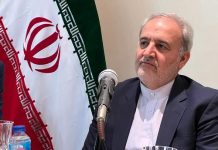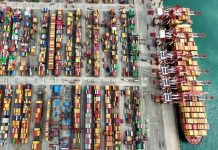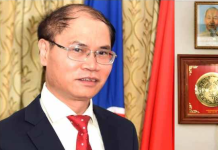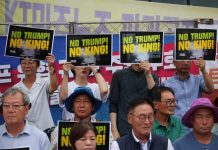London – The United States and China agreed on a framework to implement a consensus reached during May talks and reiterated in a phone conversation last week between their leaders, as two-day trade negotiations concluded in London, Chinese state-run media said Wednesday.
The high-level meeting was believed to have centered on easing export controls on critical sectors.
U.S. Treasury Secretary Scott Bessent described the talks as “productive,” while Chinese Vice Commerce Minister Li Chenggang was quoted as saying the two countries had “professional, rational, in-depth and candid exchanges.”
U.S. Commerce Secretary Howard Lutnick told reporters early Wednesday following the lengthy talks, “We do absolutely expect that the topic of rare earth minerals and magnets, with respect to the United States of America, will be resolved in this framework of implementation.”
The administration of U.S. President Donald Trump has expressed frustration over China’s slow removal of export controls on rare earths used in high-tech products, criticizing Beijing for failing to uphold the terms of the Geneva trade deal.
China, meanwhile, has accused the Trump administration of imposing export controls on goods such as semiconductors despite the deal, under which the world’s two largest economies established a 90-day truce in their trade war and committed to stepping back from their respective triple-digit tariff rates.
U.S. Trade Representative Jamieson Greer, who met the press with Lutnick, said the two countries are “working together very closely” to ensure “the implementation goes forward speedily.”
The second round of trade negotiations, following the first held in Geneva, came after the 90-minute conversation between Trump and Chinese President Xi Jinping on Thursday. It was their first known direct communication since the U.S. president’s inauguration in January.
The Chinese delegation at the London talks was led by Vice Premier He Lifeng, who oversees economic affairs, and Commerce Minister Wang Wentao.
As part of retaliatory measures against high U.S. tariffs, Beijing in April introduced export controls on seven types of rare-earth minerals.
China mines about 70 percent of the world’s rare earths used in the production of smartphones, personal computers and vehicles.
BY: The Times Union








